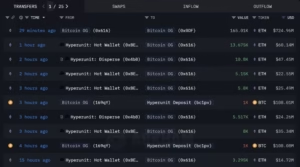The cryptocurrency landscape is ever-evolving, and the recent developments surrounding the Jupiter DAO have caught the attention of investors and enthusiasts alike. In a significant decision, voters within the Jupiter DAO rejected an ambitious plan to distribute $1.6 billion worth of JUP tokens as part of an airdrop strategy. This decision has raised questions about the future of the Solana DeFi exchange and what it means for the community moving forward.
Initially, the airdrop was intended to incentivize users who actively engaged with the exchange, thereby stimulating liquidity and enhancing user participation. The hefty sum proposed would have been a historic moment not just for Jupiter but for the broader Solana blockchain ecosystem. However, the rejection signals a pivotal moment in governance models within decentralized finance (DeFi) communities.
Analyzing the voting outcomes reveals a range of factors that may have contributed to the community’s decision. Here are some key aspects that voters considered:
- Concerns Over Centralization: Some members expressed fears that such a large distribution could lead to centralization of power among a few wallet addresses, undermining the decentralized ethos of the platform.
- Market Saturation: Given the current market conditions, there were worries that flooding the market with JUP tokens could diminish their value, adversely affecting both current holders and prospective investors.
- Alternative Incentives: Voters suggested that the resources allocated for the airdrop could be better spent on improving the platform’s functionalities or creating more sustainable incentive models.
Despite the setback, the Jupiter DAO remains committed to refining its approach. The community has expressed a willingness to explore alternative strategies that prioritize long-term sustainability over quick gains. Future proposals may include:
- Enhanced User Engagement Programs: Instead of one-time airdrops, the DAO could implement loyalty programs that reward consistent usage over time.
- Collaboration with Other Protocols: Partnerships with established cryptocurrency projects could provide both liquidity and exposure, enhancing value for JUP holders.
- Educational Initiatives: Educating users about the importance of sustainable governance and participation in decision-making can drive more informed voting decisions in the future.
As the dust settles from this significant voting event, one thing is clear: the Solana DeFi landscape is dynamic, with users eager to contribute to discussions about governance and incentives. The Jupiter DAO must now not only listen to its community’s feedback but also innovate in ways that honor the fundamental principles of decentralization.
In conclusion, the rejection of the $1.6 billion airdrop plan marks a transformative moment for the Jupiter DAO and Solana’s DeFi ecosystem. It highlights the complexities of community governance and the importance of aligning incentives with long-term goals. The path ahead may be filled with challenges, but it also presents opportunities for growth, collaboration, and enhanced user engagement.




